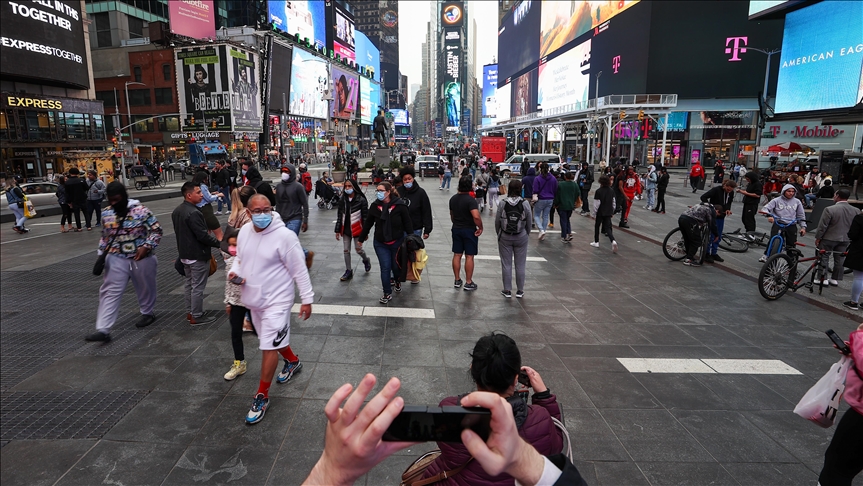Life expectancy in the US fell by the largest one-year decline since World War II, according to figures released Wednesday by the Centers for Disease Control and Prevention (CDC).
The average lifespan for Americans in 2020 fell by a year and a half, and the drop was even worse for Black and Hispanic Americans: three years.
The drop was mainly due to the coronavirus pandemic, which the CDC said was responsible for almost 74% of the overall decline of life expectancy.
White Americans now have a life expectancy of 77 years, 7 months.
Black Americans' average life expectancy is at 71 years, 10 months.
And more Americans died in 2020 than in any other year in history: over 3.3 million. Of those deaths, COVID-19 accounted for about 11%.
The last time that life expectancy dropped so dramatically for Black Americans was during the Great Depression of the mid-1930s.
Records for Hispanic life expectancy do not go as far back, buy they, too, show the largest drop in history.
Overall, life expectancy for all Americans peaked in 2019 at 78 years, 10 months.
The CDC study found that the COVID crisis affected races differently: COVID was responsible for 90% of the Hispanic drop in life expectancy, 68% responsible for the drop among whites, and 59% responsible for the drop among Blacks.
Other than COVID, drug overdoses helped push the death toll higher, and life expectancy lower, especially for white Americans.
The study's lead author, Elizabeth Arias, pointed out that homicides, which have seen dramatic increases over the last year, are a small but significant reason why Black Americans are dying younger.
